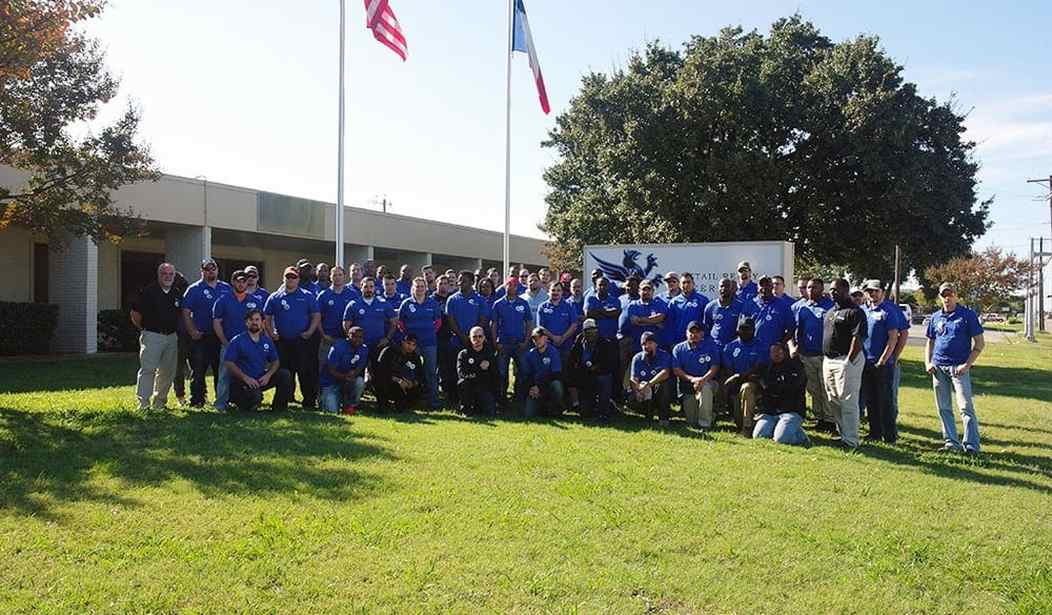Last week a lawsuit was filed in the Northern District of Texas federal court alleging that the Office of Inspector General of the Department of Veterans Affairs office and its employee, Miguel Coias, knowingly and maliciously targeted the Retail Ready Career Center, Inc. (RRCC) for destruction with no evidence of any crime and, in fact, fabricated evidence against it.
Jonathan Davis began his career as an installation helper in the heating, ventilation, and air conditioning (HVAC) field. After learning the business, he and a partner started their own service company. While servicing customers he noticed the need for well-trained and prepared technicians. He also was fully aware of the growing veteran jobless and homeless crisis. Davis decided to open a school with a boot-camp-like philosophy using an intensive six-week program to serve the needs of the customers he had. This school would also be a place for veterans, many of them homeless, to use their benefits offered through the GI bill to get the education they were promised, which would, in turn, lead to a good job. Retail Ready Center, Inc. was born.
“I opened up the school with a very specific intent that there were two segments that weren’t being served. The veterans and the HVAC community, which needed a quarter of a million service technicians,” Davis told PJ Media. “Those jobs are very good and well-paying jobs. The purpose of Retail Ready was linking those two groups.”
RRCC became very successful with an 89 percent graduation rate and a job placement rate of 81 percent. Davis says the placement rate would be even higher, but some students did not pass the drug tests.
“Traditional trade schools have not innovated in 20 or 30 years and that was a big reason the school was successful,” said Davis. His program put students into paying jobs in just six weeks compared to traditional schools that were far bigger time commitments. “I understood who my customer was: the hiring community. The intent was to merge those two together. The vets had those benefits and weren’t utilizing them anywhere because they didn’t see themselves as four-year students. They want to work, they don’t want a handout.”
Davis helped many homeless vets. “One vet showed up at my school homeless, separated from his family and living in the back of his truck,” he said. “Part of the school was providing housing for students. That got them off the street immediately and without any red tape. If they needed additional time after they graduated [to get] additional paychecks, the school would subsidize that extra housing wherever their home city was until they could get money to get a place.”
RRCC went out of its way to help graduates get on their feet. “Our general counsel helped hundreds of students who had drivers’ licenses that were revoked or they had too many tickets. We made sure they got their licenses back.” RRCC has many graduates who have written affidavits attesting to the good education they received.
Despite being audited three times and each time coming up clean, the government decided to destroy the school and seize Davis’s assets. Two years later he has not been charged with any crime. The lawsuit reads,
On September 20, 2017, agents of the United States used fraudulently obtained warrants to raid Plaintiff’s school and seize all of Plaintiff’s funds and other property. Nearly two years later, the Government is still unconstitutionally and unlawfully holding Plaintiff’s property. By initiating and continuing a bogus criminal investigation and baseless civil forfeiture proceeding, the Government has escaped scrutiny and accountability for its misdeeds. That is about to change.
Davis is also suing government employee Miguel Coias personally in this lawsuit, alleging that he withheld exculpatory evidence and falsified information to obtain fraudulent warrants.
Denied his property and money, with the government holding four million dollars that belongs to Davis, and unable to continue operating the school, he has had to go back to HVAC work. “I’ve been in the trade over twenty years,” he told PJM. “It was easy for me to transition back to selling air conditioning and heating equipment.” He asks himself regularly who he must have angered to set off this chain of events. “There’s one general theory that I’ve come up with. My model truly scared the crap out of whoever is in charge of the purse over the GI bill. There is a 70 to 80 percent breakage rate with the GI bill. Congress, and whoever appropriated those funds, counted on the fact that 70 to 80 percent of American soldiers would never use the bill,” he said. “I showed that population who had been long forgotten and that had a 45 percent unemployment rate how to make a good living in six weeks and a lot of them spent their money. We built the largest school in the state of Texas. I believe that scared the government that they would have to actually pay these veterans the money they promised them.”
Texas earns a D+ in civil forfeiture according to Institute for Justice, which rates states according to their applicable laws, citing a low bar for forfeiture, poor protections for third parties, and a high percentage of forfeiture proceeds going to law enforcement.
Texas has terrible civil forfeiture laws, earning a D+. The standard of proof required to forfeit property in Texas is just preponderance of the evidence, and an innocent owner bears the burden of proving that she was not involved in any crimes associated with her property before she can get it back. In addition, law enforcement agencies enjoy a strong incentive to seize property. In cases where a default judgment is entered—as is the case in the majority of forfeiture actions—agencies retain up to 70 percent of forfeiture proceeds. In contested cases—those in which the property owner challenges the basis for the seizure—agencies retain up to 100 percent of proceeds.
Over the last two years, this case has been overseen by five different judges, three of whom recused themselves and one who walked away. Motions by the plaintiff have been delayed seven to eleven months with no ruling. Davis’s attorney, Jack Ternan, calls it denial of due process. “We’ve filed a motion alleging that the case needs to be dismissed for denial of process and that one has been sitting for seven months!” Ternan hopes that this lawsuit will finally bring justice in this case.
Among the outrages is what RRCC alleges happened to the veterans whose schooling was interrupted by the seizure. Ternan wrote, “The VA’s treatment of the veterans enrolled in the course after the closure of the school was despicable…Coias, Jarvis, and other employees of the United States refused to release any of the seized funds to pay for the now-former students to return home. Unwilling to leave hundreds of veterans homeless and stranded, Mr. Davis utilized credit cards to pay for the return travel.”
Though Davis and his school are being accused of defrauding Veterans Affairs somehow, the government refuses to provide the evidence they have to Davis due to their so-called “pending investigation,” which has been ongoing for the last two years with no end in sight. RRCC passed every audit the VA and the state of Texas performed. The school has not been accused of not providing the education it said it provided and it met all the standards of a school according to all three audits.
The lawsuit is asking for monetary and punitive damages in the amount of $250,000,000, attorney’s fees, and all court costs related to the case.
Megan Fox is the author of “Believe Evidence; The Death of Due Process from Salome to #MeToo.” Follow on Twitter @MeganFoxWriter










Join the conversation as a VIP Member